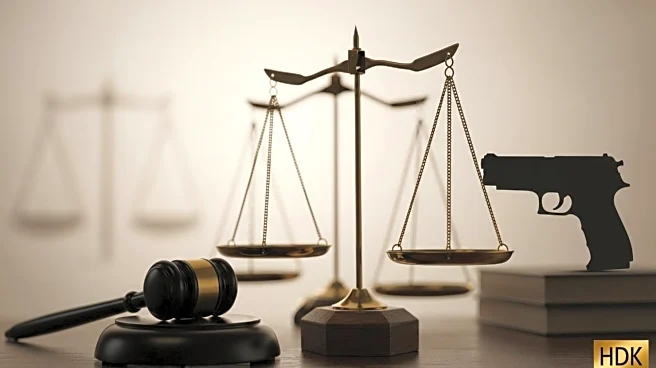What's Happening?
U.S. Attorney Jeanine Pirro has announced a significant policy shift by deciding not to prosecute individuals carrying long guns and high-capacity magazines openly in Washington, D.C. This decision marks a departure from the long-standing policy of treating such offenses as felonies. Instead, violators may now face only misdemeanor charges for possessing unregistered firearms. This move has sparked concerns about public safety, particularly given Washington's unique security challenges as the nation's capital. The decision is reportedly based on interpretations of Supreme Court rulings, including District of Columbia v. Heller and New York State Rifle & Pistol Assoc. v. Bruen, although these cases did not specifically address open carry bans.
Why It's Important?
The decision to relax enforcement of gun laws in Washington, D.C. could have significant implications for public safety and security. The capital is home to numerous sensitive federal institutions and attracts millions of visitors annually. The presence of armed civilians, coupled with the existing federal troops, could increase the risk of violence and create an atmosphere of fear and intimidation. This policy change may embolden extremist groups and individuals, potentially leading to increased tensions and security challenges. The decision also raises questions about the balance between Second Amendment rights and public safety, particularly in a city with a history of political unrest.
What's Next?
The policy shift may lead to increased scrutiny and debate among lawmakers, law enforcement, and civil society groups. There could be calls for legislative action to address the potential security risks posed by the new policy. Additionally, the decision may face legal challenges from those who argue it undermines public safety. As the situation develops, stakeholders will likely monitor the impact on crime rates and public perception of safety in Washington, D.C.
Beyond the Headlines
The decision highlights broader national debates over gun control and the interpretation of Second Amendment rights. It underscores the tension between federal and local authorities in managing security and public safety in the capital. The policy change may also influence similar debates in other jurisdictions, potentially affecting national gun policy trends.











